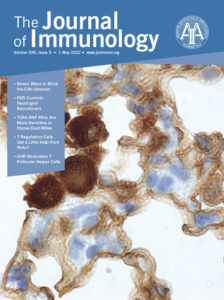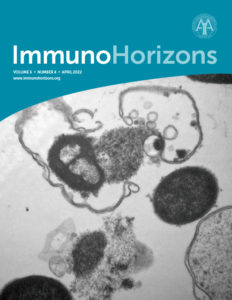Tuesday, May 10, 2022 10:15 AM – 12:15 PM ET Room A105–106
Molecular Mechanisms of T Cell Signaling
Chairs
- Fabienne Gally, Natl. Jewish Hlth., Colorado
- Kaushik Choudhuri, Univ. of Michigan Med. Sch.
Speakers
- Fenglei Li, Univ. of Michigan Med. Sch., TCR-enriched microvesicles provide antigen-specific help for class-switched antibody production
- Melissa Erin Cook, Washington Univ. in St. Louis, Sch. of Med., The ZFP36 family of RNA-binding proteins regulate homeostatic and autoreactive T cell responses
- Jasmine Tuazon, Ohio State Univ. Col. of Med., The Ikaros zinc finger transcription factor Eos as a candidate regulator of TH2 differentiation and function
- Nicole M. Carter, Johns Hopkins Univ. Sch. of Med., QRICH1 is a CARD11 interactor that negatively regulates T cell activation
- Jacob W. Thompson, Univ. of Utah, Cell-specific roles for miR-155 during neuroinflammation
- Wen Lu, Univ. of California, San Francisco, The phosphatidylinositol-transfer protein Nir3 modulates T cell development and function
- Shuvam Mohan Chaudhuri, Feinberg Sch. of Med., Northwestern Univ., Mediator complex maintains peripheral T cell tolerance through enforcement of the quiescence module
- Katja Aviszus, Natl. Jewish Hlth., Colorado, Absence of the fatty acid binding protein5 (FABP5) inhibits the establishment of resident memory T cells after a secondary Listeria monocytogenes infection



